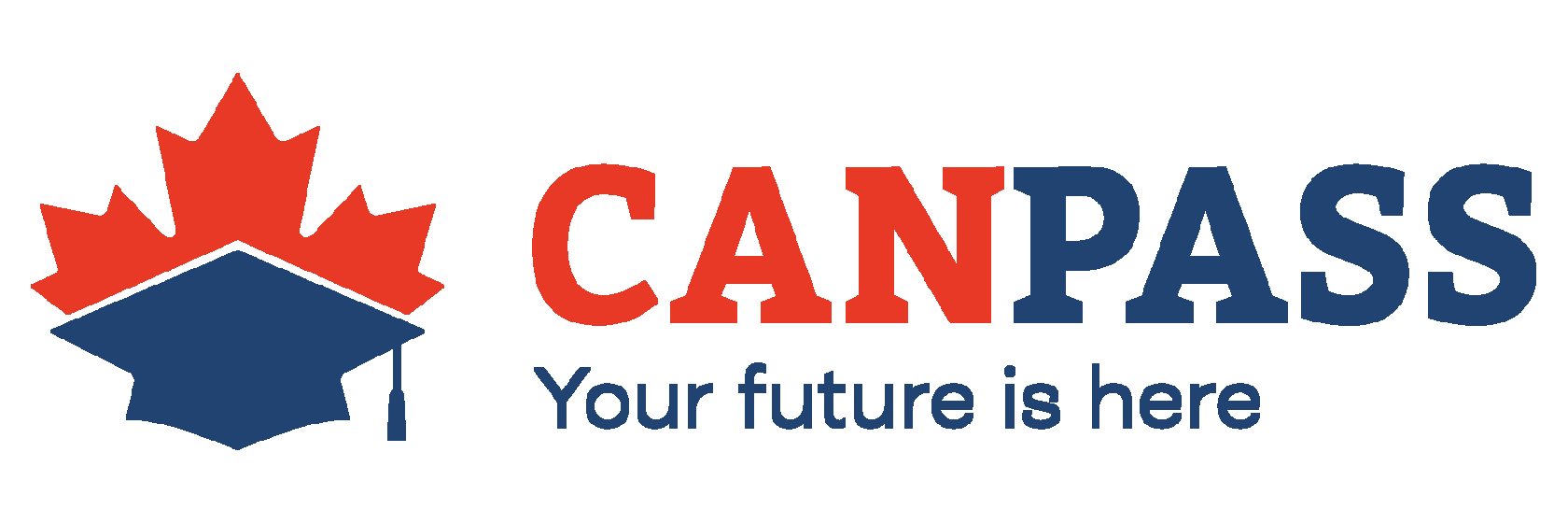Get a free consultation with Canpass Group expert
Ask a question
By clicking the button, you accept the service terms and conditions and privacy policy
Masters in Canada
Advantages, Features, Requirements and Admission Process for a Master’s Degree in Canada
Masters in Canada
Advantages, Features, Requirements and Admission Process for a Master’s Degree in Canada
- Types of Master's Degree
- Who is a Canadian Master's Degree Not Suitable for?
- Features of Master's Degree in Canada
- Benefits of a Master's Degree in Canada
- Canadian Master’s Degree admission process
- Documents required for admission to a master’s degree in Canada
- Our services
- Universities-partners of Canpass Group
A Master’s degree is the next step of education in Canada, for which a Bachelor’s degree is required to start. They can only be earned at universities, however colleges offer post-graduate programs that are comparable to a speciality in a specific field of study. A Master’s degree is typically required for licensed professions in Canada, and usually consists of more in-depth study of the chosen field. This includes research and innovation projects, and preparing students for potentially teaching and further contributing to the research in the field of study.
A Master’s degree is the next step of education in Canada, for which a Bachelor’s degree is required to start. They can only be earned at universities, however colleges offer post-graduate programs that are comparable to a speciality in a specific field of study. A Master’s degree is typically required for licensed professions in Canada, and usually consists of more in-depth study of the chosen field. This includes research and innovation projects, and preparing students for potentially teaching and further contributing to the research in the field of study.
Types of Master's Degree
The content and process of admission depends on the type of Master’s degree:
1
Course based
The structure of the program is pre-defined and does not require any additional decisions from the student
2
Thesis based
As a prerequisite, a student must declare a research interest, as well as prior consent from a supervisor to conduct the work of the student’s thesis.
3
Project based
Consists of a mandatory number of courses, as well as a culminating graduation project.
1
Course based
The structure of the program is pre-defined and does not require any additional decisions from the student
2
Thesis based
As a prerequisite, a student must declare a research interest, as well as prior consent from a supervisor to conduct the work of the student’s thesis.
3
Project based
Consists of a mandatory number of courses, as well as a culminating graduation project.
Who is a Canadian Master's Degree Not Suitable for?
A Master's degree is not necessary for employees in fields where:
- Practical experience in projects and number of publications are valued more (eg construction, communication, information technology, journalism)
- Professional accreditation is appreciated for professional advancement (accounting, financial analysis, actuarial sciences)
- Practical experience in projects and number of publications are valued more (eg construction, communication, information technology, journalism)
- Professional accreditation is appreciated for professional advancement (accounting, financial analysis, actuarial sciences)
If you view yourself as a teacher or a researcher, then a Master’s degree might be for you. However, it is important to consider the time, effort, and financial investment necessary to obtain a Master’s, and whether or not it is worth it compared to the demand for such a degree in Canada.
If you view yourself as a teacher or a researcher, then a Master’s degree might be for you. However, it is important to consider the time, effort, and financial investment necessary to obtain a Master’s, and whether or not it is worth it compared to the demand for such a degree in Canada.
Features of Master's Degree in Canada

Obtaining a master’s degree in Canada takes approximately 2 years to complete. Since international students are required to only study full-time under the terms of a student visa, there is no part-time option available for a Master’s degree. A Master’s degree in Canada comes at a cost. Although it is possible to apply for scholarships to assist with funding, full funding for the program is very rare, especially for international students.

Most Master’s programs in other countries are based on a predetermined set of courses and graduate work. In Canada, Master’s programs are largely research and thesis based, with certain programs requiring a specific set of courses.

In Canada, graduate students are often not admitted immediately after completing their bachelor’s degree. Universities will also likely ask for confirmation of practical experience, as well as recommendations that the student may have earned after finishing their Bachelor’s program.

Some faculties will allocate a limited number of locations for international students to complete their programs. This may be due to a high demand coming from domestic students, or perhaps simply a highly competitive field.
Benefits of a Master's Degree in Canada

A Master’s degree counts for an additional 30 points, instead of the 15 provided by after-graduate programs, for the purposes of applying for permanent residency status.

Some provinces of Canada have special immigration programs for undergraduates and doctors

Approval of a student visa application is more likely, which is especially important for applicants over the age of 25

More Scholarship Options than Postgraduate College Programs

Canadian Master’s Degree admission process
Since most graduate programs only start in September, the application deadline is often in February. It is necessary to start the process of admission to the Master’s program at least a year before the start of the program.
Since most graduate programs only start in September, the application deadline is often in February. It is necessary to start the process of admission to the Master’s program at least a year before the start of the program.
1
Finding a supervisor and obtaining their consent to lead your research topic
2
Passing any required tests, as well as translation and preparation of a competitive package of documents
3
Submitting an application following the protocol detailed on the university’s official website (be sure to check that all documents are collected in the required format)
4
Request recommendations with the consent of your referees, and let them know that they may be approached for confirmation
5
Preparation for an interview (for admission to an MBA and art programs)
1
Finding a supervisor and obtaining their consent to lead your research topic
2
Passing any required tests, as well as translation and preparation of a competitive package of documents
3
Submitting an application following the protocol detailed on the university’s official website (be sure to check that all documents are collected in the required format)
4
Request recommendations with the consent of your referees, and let them know that they may be approached for confirmation
5
Preparation for an interview (for admission to an MBA and art programs)
Documents required for admission to a master’s degree in Canada
- Bachelor’s diploma and attach passing grades in specialized subjects, as well as certified translations (sometimes a direct letter from your previous university is required)
- Language test results to verify level of knowledge (IELTS / TOEFL, PTE)
- Candidate’s motivation letter
- CV or resume
- At least 2 recommendations
- Bachelor’s diploma and attach passing grades in specialized subjects, as well as certified translations (sometimes a direct letter from your previous university is required)
- Language test results to verify level of knowledge (IELTS / TOEFL, PTE)
- Candidate’s motivation letter
- CV or resume
- At least 2 recommendations
Depending on the program, examples of work may be required. This could be a portfolio of works for art students (graphics, design, music), or sample written text such as essays, past publications, reports or article excerpts.
Depending on the program, examples of work may be required. This could be a portfolio of works for art students (graphics, design, music), or sample written text such as essays, past publications, reports or article excerpts.

Ask a question
Initial consultation and assessment of chances
Leave a request and we will contact you shortly
Selection and full support of admission to a master's degree for Universities-partners (Free)
Leave a request and we will contact you shortly
Selection and full support of admission to a master's degree for other Universities
Leave a request and we will contact you shortly
Our services
Our services
Initial consultation and program selection
Not only prospective students, but also their parents can get a consultation with a licensed immigration consultant
$190 CAD
- Get answers to questions about the admission process, general admission requirements, approximate tuition and living costs
- Assessment of chances of admission to the master’s degree program
- Program selection
Selection and full support of admission to a master’s degree
Selection and full support of admission to a master’s degree
Service
Availability
Consultation on the choice of university and province, based on the goals, wishes, abilities of the child and budget
Assistance in preparing an academic package of documents
Registration at university
Consulting on the best ways to pay for studies and accommodation
State fees
Costs of translation and postage (possible) of documents
Registration for a visa and a study permit
Service
_
Consultation on the choice of university and province, based on the goals, wishes, abilities of the child and budget
Assistance in preparing an academic package of documents
Registration at university
Consulting on the best ways to pay for studies and accommodation
State fees
Costs of translation and postage (possible) of documents
Registration for a visa and a study permit
Selection and full support of admission to a master’s degree
List of Canpass Group services
Universities-partners of Canpass Group
Brock University
Brandon University
St.Mary's University
Trent University
University Canada West
Royal Roads University
University of Manitoba
Ryerson University
Simon Frasier University
University of Windsor
University of Toronto
York University
Lakehead University
Cape Breton University
Mount Saint Vincent University
Capilano University
University of
The Fraser Valley
The Fraser Valley
Kwantlen Polytechnic University
Thompson Rivers
University
University
University of Northern
British Columbia
British Columbia
Vancouver Island
University
University
University of Regina
University of
Saskatchewan
Saskatchewan
Algoma University
University of
New Brunswick
New Brunswick
Wilfred Laurier
University
University
Laurentian University

Ask a question
Click to order

